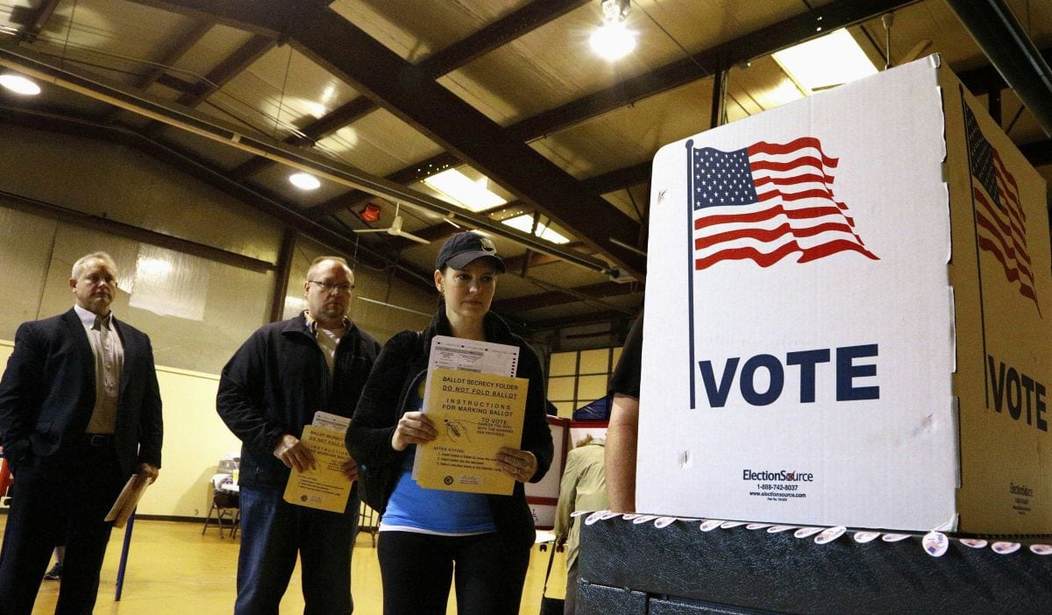A Des Moines woman has been arrested for allegedly voting twice in Iowa’s presidential election—for Donald Trump.
The media is playing up the schadenfreude of the story, but they really don’t have to. The irony is striking.
“I wasn’t planning on doing it twice, it was spur of the moment,” says Rote. “The polls are rigged.”
But Polk County Attorney John Sarcone says voter fraud in Iowa is very rare, which is evidence that Iowa’s election system is secure.
“I think in the 25-plus years that I’ve been doing this job, this maybe the third [time] we’ve had some irregularity that’s resulted in a criminal charge,” says Sarcone. “People aren’t voting more than once. And if they do, or attempt to do it, they will get caught because there are safeguards in place….We want everybody to exercise their right to vote, but only once.”
Rote was released from jail on Friday on a $5,000 bond. If convicted, she faces up to five years in prison.
I don’t know if voter fraud is “rare” in Iowa and neither does Sarcone. The fact that few people have been caught at it is not evidence that it hardly exists—especially when you consider authorities don’t look very hard for it and that most voter registration lists are a total mess.
Case in point: the state of Illinois.
Susie Sallee was buried in 1998. Yet records show she voted in Chicago 12 years later.
Victor Crosswell died in 1994, but records show he’s voted six times since then.
And then there’s Floyd Stevens. Records show he’s voted 11 times since his death in 1993.
“It’s crazy,” Sharon Stevens Anderson, Stevens’ daughter, tells CBS 2’s Pam Zekman. “I don’t see how people can be able to do something like that and get away with it.”
Those are just a few of the cases CBS 2 Investigators found by merging Chicago Board of Election voter histories with the death master file from the Social Security Administration.
In all, the analysis showed 119 dead people have voted a total of 229 times in Chicago in the last decade.
Jim Allen, a city election board spokesman, says a majority of those dead voters were most likely clerical errors, involving family members with the same names and addresses.
“This is not the bad old days,” Allen says. “There are just a few instances here where a father came in for a son, or a neighbor was given the wrong ballot application and signed it.”
But in some cases, there was no clear explanation.
Take Tadeusz Ciesla. Records show he voted in 2010.
But his nephew Marek Ciesla says that’s impossible because he died in 1998.
“That’s a fraud,” he says.
Informed of the findings, Don Rose, a political consultant, says: “Some of these could be accidental or just some individual who says, ‘I really like such and such a candidate so I’m going to take advantage of this — vote until they stop me.’”
Allen says about 60,000 dead voters have been purged from the rolls over the last decade — but 2 Investigators found numerous examples of that not happening.
Earl Smith says he reported the 1997 death of his father, also named Earl Smith. But records indicate his father has voted twice after he died.
Allen says the board identifies and removes most dead voters.
“Any time you can clean up the rolls it helps reduce and eliminate the prospect of any kind of mistake or fraud,” Allen says.
Robert Sallee says he tried to do that by reporting his mother’s death multiple times.
“They’re just not taking her off the rolls,” he says.
Perhaps we should all come back down to earth about “stealing” or “rigging” elections. While there are likely millions of dead people still registered to vote, they are actually the easiest kind of fraud to spot. If there was the kind of organized voter fraud operation using dead people to vote that some Trump supporters suggest, state authorities would know of it almost immediately and investigators would have uncovered far more examples of it in places like Chicago, Indiana, and Philadelphia, where the numbers amount to only a few hundred.
Far more dangerous and harder to find and expose is corruption in absentee balloting. This is a system in dire need of reform and where wrongdoing has a real potential to change a close race.
There are other problems, as Pew found:
According to a recent report by the Pew Center the American voter registration system is in dire need of an upgrade.
** Approximately 24 million—one of every eight—voter registrations in the United States are no longer valid or are significantly inaccurate.
** More than 1.8 million deceased individuals are listed as voters.
** Approximately 2.75 million people have registrations in more than one state.
Bottom line:
1. No one knows if voter fraud is a big or small problem. And there’s no enthusiasm by either side to investigate the issue to answer that question.
2. Both sides do it.










Join the conversation as a VIP Member